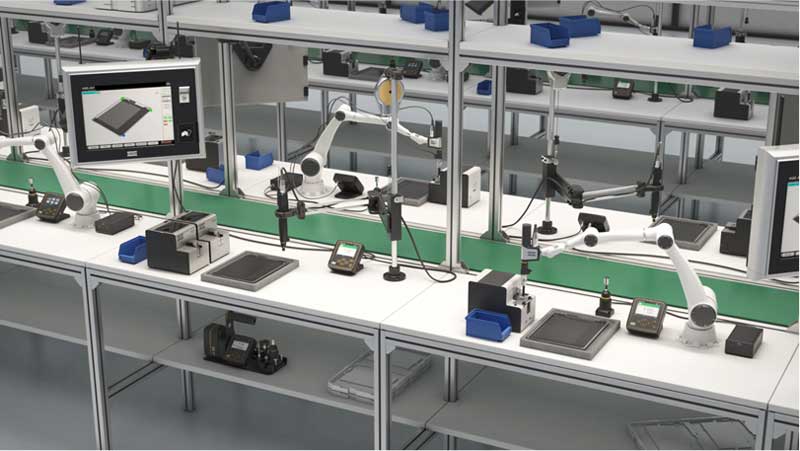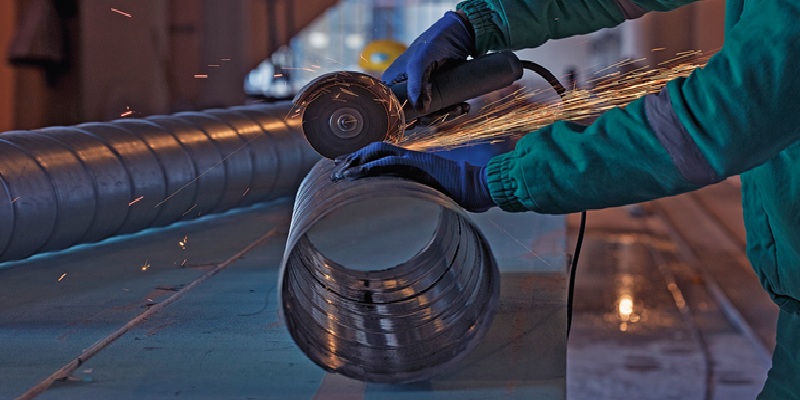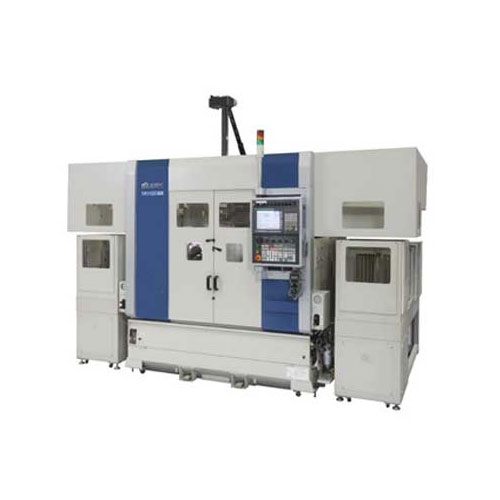Schedule a Call Back
Top 5 technologies shaping the future of manufacturing
 Industry News
Industry News- Sep 01,22

The manufacturing industry has always been driven by the technological advancements and innovations. From big data analytics to advanced robotics, the revolutionary advantages of mode, technologies are helping manufacturers reduce human intervention, improve plant productivity and gain a competitive advantage.
Sophisticated technologies such as AI, Internet of Things and 3D printing, among others, are shaping the future of manufacturing by lowering production costs of production, improving the speed of operations and minimising errors. With productivity becoming critical to the success of a manufacturing plant, individual manufacturers are expected to make significant investments in these technologies.
Here are five technological interventions that are driving growth in the manufacturing industry.
1. Industry 4.0
The internet of things (IoT) is rapidly being implemented in the industrial and manufacturing domain, providing plant owners with an opportunity to increase productivity and decrease complexity. In 2020, the number of Internet-connected devices will reach 25 billion. IIoT is an amalgamation of various technologies, such as machine learning, big data, sensor data, cloud integration, and machine automation. The technologies are used predictive and proactive maintenance, real-time monitoring, resource optimization, supply chain visibility, cross-facility operations analyses, and safety, enabling plant managers to minimize downtime and enhance process efficiency. It is essential for a plants need to operate smoothly to perform regular maintenance and repairs. However, not all equipment and devices require the same amount of maintenance. The IIoT enables plant managers to monitor equipment conditions and perform predictive maintenance. Their real-time performance monitoring enables them to plan maintenance around when necessary, reducing the likelihood of unplanned outages and productivity loss.
2. Big Data Analytics
Big data analytics can provide many ways to improve asset performance, streamline manufacturing processes and facilitate product customization. A recent Honeywell survey found that 68% of American manufacturers already invest in big data analysis. These manufacturers can inform decisions using productivity and waste efficiency data provided by big data analysis, reducing operations costs and increasing overall performance.
3. AI and machine learning
For several decades, manufacturers have used robotics and mechanisation to increase productivity and reduce production costs per unit and machine learning appear to be the next wave in fabrication. AI is helping production teams analyze data and use the insights to replace inventory, reduce operational costs and offer seamless quality control over the entire manufacturing process. The era of unintelligent robots engaged in cyclic production tasks has ended. AI and machine learning are making it possible for robots and humans to collaborate, creating agile manufacturing processes that learn, improve and make smart manufacturing decisions. As a result, manufacturers can use industrial robotics and intelligent automation to manage routine tasks and focus their time and resources on income generating tasks such as research and development, expanding product lines and improving customer service.
4. 3-D Printing
The 3-D printing or additive layer manufacturing technology is expected to have a huge impact on high-end industries such as aerospace, mining, machines, automobiles, firearms, commercial and service machines, and other industrial equipment. This revolutionary technology allows manufacturers to build physical products from complex digital designs stored in 3D Computer Aided Design (CAD). Materials such as rubber, nylon, plastic, glass and metal can also be used to print real objects 3D bio-printing allowed to manufacture of living tissues and functioning organs for medical research. Unlike the traditional manufacturing process, 3-D printers can create complex shapes and designs at no additional cost, offering more. Moreover, the growing applications of 3D printing in manufacturing will give rise to the concept of Manufacturing as a Service (MaaS) enabling companies to maintain a current infrastructure that meets the needs of multiple clients and eliminates the need to purchase new equipment.
5. Virtual reality (VR)
VR simplifies the product design process by removing the need for complex prototypes. Designers and engineers VR to create realistic product models, enabling them to see their designs digitally and solve potential problems before starting production. Customers can also review and interact with these digital designs, simulations, and integrated devices, greatly reducing their time to design. For example, automotive manufacturers are now using virtual reality to ensure that their cars are tested early in the vehicle development process, reducing the time and costs associated with changing designs, tolerances and safety features.
About the author:
Frans Van Niekerk, Managing Director, Atlas Copco India – which provides compressed air and vacuum equipment, individual power tools, construction and mining equipment, post selling service and maintenance.
Related Stories

India is at a pivotal ‘Make in India’ inflection point: Manoj Patil
In this interview, Manoj Patil, Promoter and Managing Director, Patil Automation Limited, outlines its growth journey, capacity expansion, acquisitions, design-led approach, market challenges, and t..
Read more
Manufacturing Excellence in the Age of Integrated Automation and Industry 4.0
Manufacturing leadership is shifting from scale-driven efficiency to integrated, data-led systems that deliver resilience, sustainability and enterprise-wide performance through Industry 4.0 and aut..
Read more
Resilience in Metal: Forging the Make in India Future in a VUCA World
The article examines how India’s stainless steel sector can turn global volatility, CBAM and supply risks into strategic advantages through sustainability, quality enforcement and digital tra..
Read moreRelated Products

Compact Fmc - Motorum 3048tg With Fs2512
Meiban Engineering Technologies Pvt Ltd offers a wide range of Compact FMC - Motorum 3048TG with FS2512.

Digital Colony Counter
Rising Sun Enterprises supplies digital colony counter.
Robotic Welding SPM
Primo Automation Systems Pvt. Ltd. manufactures, supplies and exports robotic welding SPM.














